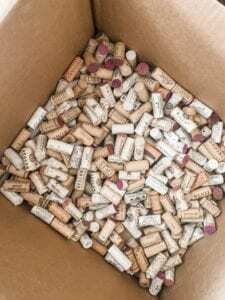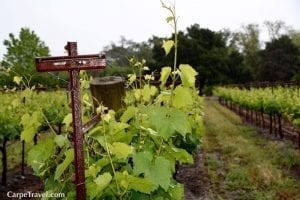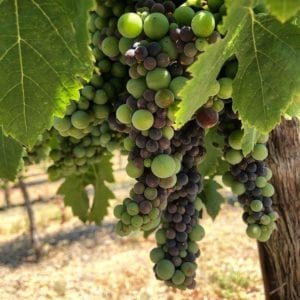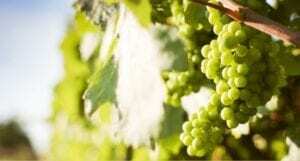[vc_row][vc_column][ultimate_heading main_heading=”Did you know agriculture is responsible for at least 20% of the annual greenhouse gases?” main_heading_color=”#8c464f” heading_tag=”h3″ main_heading_font_family=”font_family:Open Sans|font_call:Open+Sans”][/ultimate_heading][ultimate_spacer height=”20″][vc_column_text text_color=”accent”]
By Simone FM Spinner, CWS, MH
[/vc_column_text][vc_column_text]What does this have to do with your wine? Everything. Wine comes from grapes, which is an agricultural crop. As the level of greenhouse gases rise, more crops are affected, including the ever so fickle wine grape, ultimately effecting its end product – W.I.N.E.
In the last decade wine production has changed around the world much of which is due to the warming of the planet. Regions that once couldn’t grow grapes, now can. Regions that are known for a specific varietal, are struggling to maintain crops. As a result, a growing number of farmers – winemakers and vineyards – are changing how they’re producing wine by incorporating more sustainable farming practices that positively impact their crops, while also reducing their carbon footprints.[/vc_column_text][ultimate_heading main_heading=”So how can you find and support these wineries? Support the Slow Wine movement.” main_heading_color=”#8c464f” heading_tag=”h4″ main_heading_font_family=”font_family:Open Sans|font_call:Open+Sans”][/ultimate_heading][ultimate_spacer height=”20″][vc_column_text]Ten years ago, Giancarlo Gariglio and Fabio Giavedoni persuaded wine writers and critics to evaluate wines with a holistic approach. To more or less abandon the traditional tasting note style ratings and look at everything inside and outside the glass. Thus was born the Slow Wine guide.
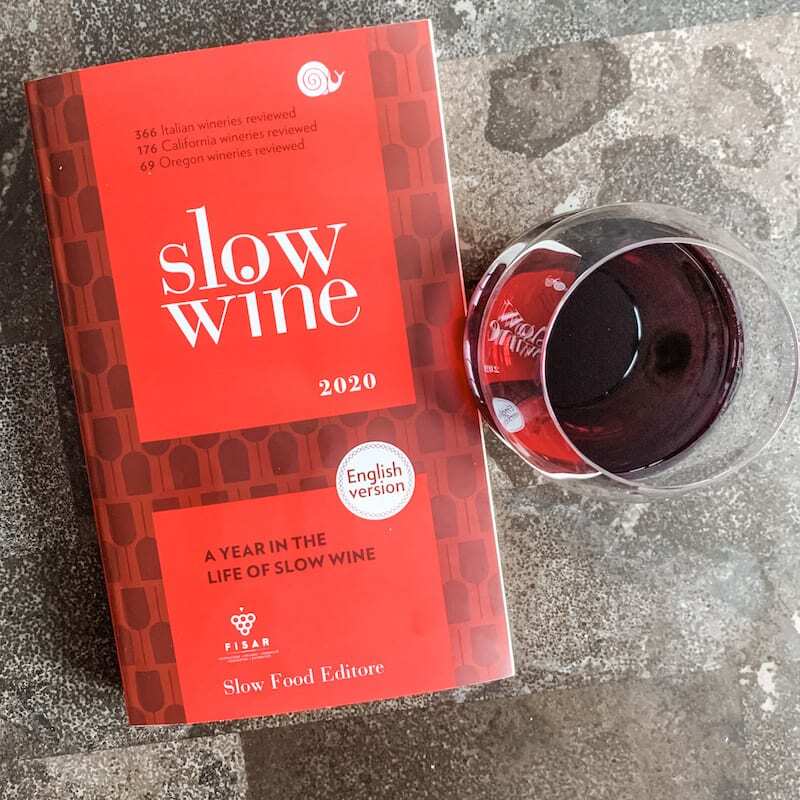 [/vc_column_text][vc_row_inner css=”.vc_custom_1587062894348{padding-right: 10px !important;padding-left: 10px !important;background-color: rgba(140,73,70,0.06) !important;*background-color: rgb(140,73,70) !important;}”][vc_column_inner][vc_column_text]The Slow Wine method considers the quality and taste of wines along with sustainable farming practices and the winemakers’ Slow-philosophy. This new approach to wine considers the fantastic wine in the bottle and the Eco-friendly practices that went into making it so delicious. The Slow Wine guide rates and reviews wineries focused on sustainability in Italy, California and Oregon. (In 2021, it will also include Washington, New York, Virginia and Maryland.)
[/vc_column_text][vc_row_inner css=”.vc_custom_1587062894348{padding-right: 10px !important;padding-left: 10px !important;background-color: rgba(140,73,70,0.06) !important;*background-color: rgb(140,73,70) !important;}”][vc_column_inner][vc_column_text]The Slow Wine method considers the quality and taste of wines along with sustainable farming practices and the winemakers’ Slow-philosophy. This new approach to wine considers the fantastic wine in the bottle and the Eco-friendly practices that went into making it so delicious. The Slow Wine guide rates and reviews wineries focused on sustainability in Italy, California and Oregon. (In 2021, it will also include Washington, New York, Virginia and Maryland.)
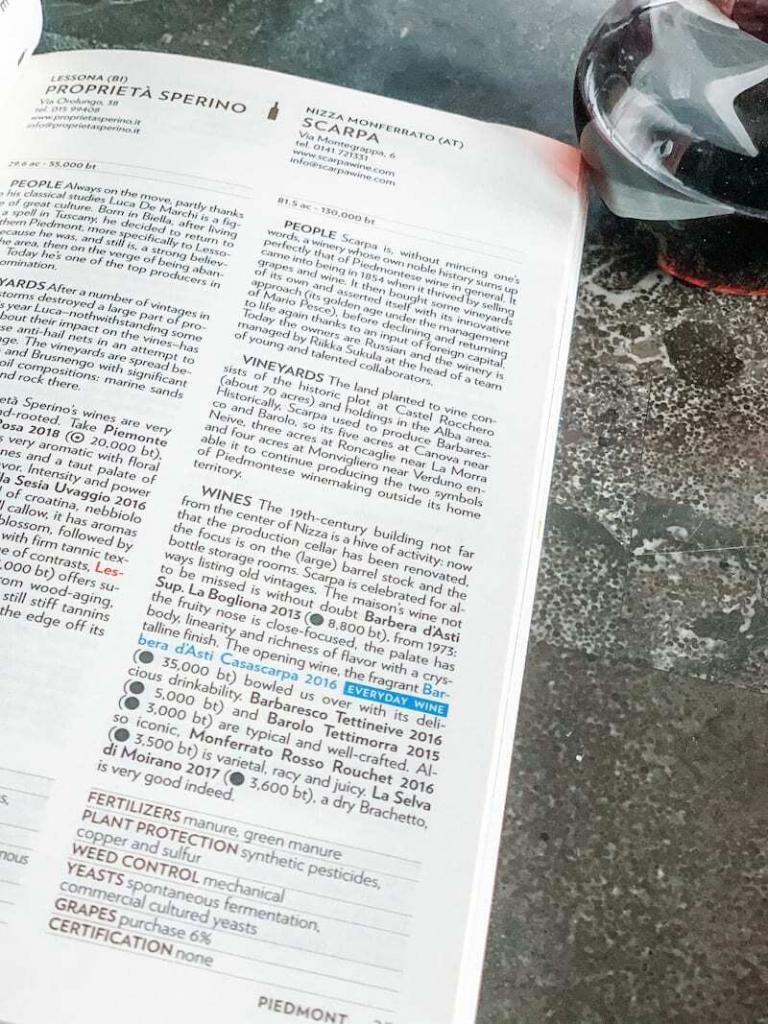 [/vc_column_text][/vc_column_inner][/vc_row_inner][/vc_column][/vc_row][vc_row][vc_column][ultimate_spacer height=”15″][ultimate_heading main_heading=”There is so much more that goes into a great bottle of wine. The story behind the wine is most of its beauty.” main_heading_color=”#8c464f” heading_tag=”h4″ main_heading_font_family=”font_family:Open Sans|font_call:Open+Sans”][/ultimate_heading][ultimate_spacer height=”15″][vc_column_text]Slow-philosophy and locavore values are increasingly important to consumers of wine and food across the globe. According to Gariglio, Slow Wine producers want the opportunity to tell their stories and explain their wines from a cultural point of view. Often, European winemakers can trace their lineage and heritage as winemakers and grape growers for many generations. Imagine the stories their wines can tell?!?[/vc_column_text][vc_row_inner css=”.vc_custom_1587062967431{padding-right: 10px !important;padding-left: 10px !important;background-color: rgba(140,73,70,0.06) !important;*background-color: rgb(140,73,70) !important;}”][vc_column_inner][vc_column_text]Slow Wine falls under the umbrella of the momentous Slow Food movement, which was founded in Italy. Slow Food is a grassroots mission aimed at preserving and promoting local cuisine and local culture by focusing on locally sourced foods and beverages, not just in your home but in your restaurant communities. Slow Wine follows this model but with wine.[/vc_column_text][/vc_column_inner][/vc_row_inner][/vc_column][/vc_row][vc_row][vc_column][ultimate_spacer height=”10″][vc_column_text]I’ve spent many years in the wine industry and have met hundreds of wine producers from notable and obscure regions across the globe. Lately, many of these producers are worried. Volatile climate patterns are threatening their livelihoods, family history, and regional culture. Wine grapes are fickle and reveal changes in weather patterns and climate issues more quickly than other crops because grapes need a perfect sweetness and ripeness before they are transformed into wine.
[/vc_column_text][/vc_column_inner][/vc_row_inner][/vc_column][/vc_row][vc_row][vc_column][ultimate_spacer height=”15″][ultimate_heading main_heading=”There is so much more that goes into a great bottle of wine. The story behind the wine is most of its beauty.” main_heading_color=”#8c464f” heading_tag=”h4″ main_heading_font_family=”font_family:Open Sans|font_call:Open+Sans”][/ultimate_heading][ultimate_spacer height=”15″][vc_column_text]Slow-philosophy and locavore values are increasingly important to consumers of wine and food across the globe. According to Gariglio, Slow Wine producers want the opportunity to tell their stories and explain their wines from a cultural point of view. Often, European winemakers can trace their lineage and heritage as winemakers and grape growers for many generations. Imagine the stories their wines can tell?!?[/vc_column_text][vc_row_inner css=”.vc_custom_1587062967431{padding-right: 10px !important;padding-left: 10px !important;background-color: rgba(140,73,70,0.06) !important;*background-color: rgb(140,73,70) !important;}”][vc_column_inner][vc_column_text]Slow Wine falls under the umbrella of the momentous Slow Food movement, which was founded in Italy. Slow Food is a grassroots mission aimed at preserving and promoting local cuisine and local culture by focusing on locally sourced foods and beverages, not just in your home but in your restaurant communities. Slow Wine follows this model but with wine.[/vc_column_text][/vc_column_inner][/vc_row_inner][/vc_column][/vc_row][vc_row][vc_column][ultimate_spacer height=”10″][vc_column_text]I’ve spent many years in the wine industry and have met hundreds of wine producers from notable and obscure regions across the globe. Lately, many of these producers are worried. Volatile climate patterns are threatening their livelihoods, family history, and regional culture. Wine grapes are fickle and reveal changes in weather patterns and climate issues more quickly than other crops because grapes need a perfect sweetness and ripeness before they are transformed into wine.
In the last few decades, grapes are ripening earlier and are sweeter than ever before. Some regions are loving these changes, such as Colorado, Germany, British Columbia, Ontario, Scandinavia, and Great Britain. As a result, these emerging regions are making great strides in wine quality and quantity. Check them out and see for yourself. (Hopefully, the Slow Wine guide will include these areas in the future since many of the wineries are practicing sustainability in their production.)
Colorado wines are receiving national press and the sparkling wines from Great Britain are winning international praise and prizes. German wines are fuller bodied, less tart, but every bit as lush. Cold climate wines from Canada and Scandinavia are coming into their own, but can be difficult to acquire. If you stumble across them, don’t be afraid to uncork a bottle.[/vc_column_text][ultimate_heading main_heading=”Climate is changing and wine is as well. It is long past time to take a chance on eco-friendly and local wines.” main_heading_color=”#8c464f” heading_tag=”h4″ main_heading_font_family=”font_family:Open Sans|font_call:Open+Sans”][/ultimate_heading]
[vc_column_text]As the planet warms, the traditional types of grapes that grow well in traditional regions are changing. In other words, the wine industry will and is changing as will the types of wines we drink in the near future. So what can you do? Support sustainable wineries for one – get the Slow Wine Guide Book to help you find them. And, make sure to read Carpe Travel’s tips on how you can help save the planet one wine at a time.[/vc_column_text]

Simone FM Spinner, CWS, MH
Simone FM Spinner is a wine writer, consultant, judge, speaker, and published author. She is a certified sommelier with 13 advanced wine certifications, a bachelor’s and master’s degree in wine studies, and is pursuing her doctorate researching wine, climate change, and legacy. She is the Women of the Vine & Spirits 2020 WSET Diploma scholar and plans to complete her studies in 2021.
Simone FM Spinner is a top-rated university wine lecturer and certified sommelier with thirteen advanced wine certifications, a bachelor’s and master’s degree in wine studies, and is pursuing her doctorate studying the socioeconomic and cultural effects of climate change on wine. She is a sought-after wine consultant, public speaker, and published author. She organizes wine events and international wine tours through her company Wine Rocks & Chasing Grapes™©. Her website is WineRocksLLC.com

